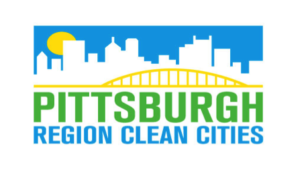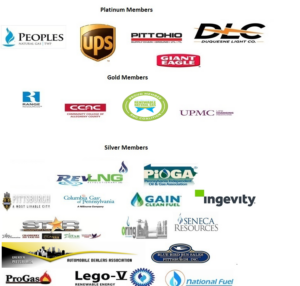Bold Citywide partnership proposes to make Pittsburgh data-driven transportation model for the nation
PITTSBURGH, PA (March 12, 2016) The U.S. Department of Transportation today named Pittsburgh as one of seven national finalists for the “Smart City Challenge,” a federal initiative that will provide the winning city $50 million to build technology-based systems to address mounting transportation and transit challenges facing cities nationwide.
Nearly 80 cities applied for the challenge in February, and today in Austin, Tex., USDOT named Pittsburgh as a finalist, along with Austin, Columbus, Denver, Kansas City, Portland and San Francisco. The Pittsburgh team was awarded $100,000 to finalize its application, which is due in April. The cities will further develop their concepts and the winner will be announced in June.
Pittsburgh’s application was the fruit of a City of Pittsburgh and Allegheny County partnership led by Carnegie Mellon University, the University of Pittsburgh, the Port Authority, and various non-profit and community stakeholders.
“Smart Cities is not just about promoting the latest transportation and energy related technology. It’s about applying those efforts to improve the lives of everyday Pittsburghers by building smarter transit corridors and connections, bridging the digital divide and building greater equity in city neighborhoods, realizing the value of new energy opportunities, and reaching those impacted by displacement or isolation,” Mayor William Peduto said.
The Pittsburgh team’s application builds upon existing work by the Traffic21 and Metro21 Initiatives at CMU, the Western Pennsylvania Regional Data Center formed by the City, Allegheny County and the University of Pittsburgh, and other initiatives.
It utilizes adaptive transportation systems that evolve over time as technologies improve, and would pilot “Smart Spines” that use new sensor information and controls that gather data on major city transportation corridors.
Using that information, the city and its partners could create new uses for various modes of transportation, provide new transportation options for underserved neighborhoods, and improve safety and traveler information. The system would be designed on an open platform, which would encourage innovation by the private sector and position Pittsburgh as a testbed for future transportation technologies.
For residents, the work could open up new transportation options for businesses and commuters in struggling neighborhoods; improve air quality; and improve safety for all commuter types.
“I want to thank Secretary Foxx, the Department of Transportation as well as our partners in Pittsburgh who supported our application for recognizing how many of these resources we already have ready-to-go at our disposal. From our existing work in energy and transportation, our great partnerships with foundations and private sector businesses, and the internationally-known work by our world-class universities, we are well positioned to lead this initiative forward,” Mayor Peduto said.
“Pittsburgh is quickly emerging as a leading center for innovations that use technology and data to address the challenges facing our cities and improve life for their residents,” said CMU President Subra Suresh. “Building on close collaboration among public, private, and academic sectors, Pittsburgh holds the promise of becoming one of the most technologically progressive cities in the world.”
“We are thrilled with this announcement, and proud to be a part of this effort,” said County Executive Rich Fitzgerald. “To be one of seven national finalists is rewarding, and reflects the Mayor’s continued work with President Obama, selling our city as a future city, a city on the move. This announcement puts us one step closer to receiving this award which will provide us with resources to continue to re-invent and grow our region. I congratulate Mayor Peduto, his entire administration, Carnegie Mellon University, the University of Pittsburgh, the Port Authority and the many other members of this team on this exciting news.”
“Receiving the Smart Cities grant positions Pittsburgh to become one of the world’s leading incubators for exciting and innovative technologies,” said University of Pittsburgh Chancellor Patrick Gallagher. “We know that an efficient, safe and innovative transportation network is essential for both the city and the University of Pittsburgh to reach their full potential. This grant will help advance work already underway at Pitt and other university, business and philanthropic partners.”
A copy of a short presentation on Pittsburgh’s plans — and a list of its partners in the effort — is available here.
While the winner of the Smart City Challenge would receive an estimated $40 million in support, an additional $10 million will be forwarded to support electric vehicle infrastructure and improved bus technologies.

